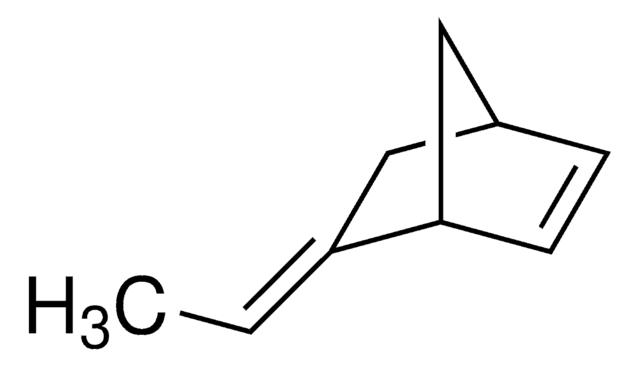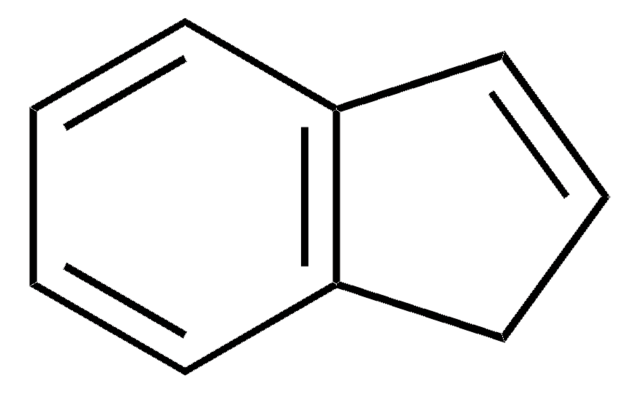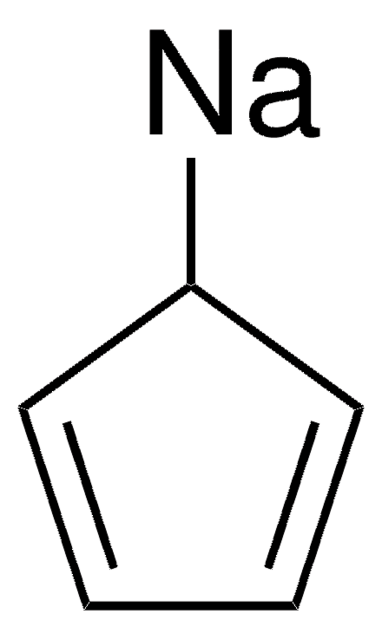36691
Dicyclopentadiene
purum, ≥95.0% (GC)
Synonym(s):
4,7-Methano-3a,4,7,7a-tetrahydroindene, Cyclopentadiene dimer, DCPD
About This Item
Recommended Products
grade
purum
Assay
≥95.0% (GC)
contains
~0.05% 2,6-di-tert.-butyl-4-methylphenol as stabilizer
refractive index
n20/D 1.511
bp
170 °C (lit.)
mp
33 °C (lit.)
density
0.986 g/mL at 25 °C (lit.)
SMILES string
C1C=CC2C3CC(C=C3)C12
InChI
1S/C10H12/c1-2-9-7-4-5-8(6-7)10(9)3-1/h1-2,4-5,7-10H,3,6H2/t7-,8+,9?,10?/m0/s1
InChI key
HECLRDQVFMWTQS-AFWXGSBKSA-N
Looking for similar products? Visit Product Comparison Guide
Other Notes
Signal Word
Danger
Hazard Statements
Precautionary Statements
Hazard Classifications
Acute Tox. 2 Inhalation - Acute Tox. 4 Oral - Aquatic Acute 1 - Aquatic Chronic 1 - Eye Irrit. 2 - Flam. Liq. 3 - Skin Irrit. 2 - STOT SE 3
Target Organs
Respiratory system
Storage Class Code
3 - Flammable liquids
WGK
WGK 2
Flash Point(F)
89.6 °F - closed cup
Flash Point(C)
32 °C - closed cup
Personal Protective Equipment
Regulatory Listings
Regulatory Listings are mainly provided for chemical products. Only limited information can be provided here for non-chemical products. No entry means none of the components are listed. It is the user’s obligation to ensure the safe and legal use of the product.
FSL
Group 4: Flammable liquids
Type 2 petroleums
Hazardous rank III
Water insoluble liquid
ISHL Indicated Name
Substances Subject to be Indicated Names
ISHL Notified Names
Substances Subject to be Notified Names
JAN Code
36691-2.5L-F:
36691-250ML-F:
36691-BULK-F:
36691-1L-F:
Choose from one of the most recent versions:
Certificates of Analysis (COA)
Sorry, we don't have COAs for this product available online at this time.
If you need assistance, please contact Customer Support.
Already Own This Product?
Find documentation for the products that you have recently purchased in the Document Library.
Customers Also Viewed
Our team of scientists has experience in all areas of research including Life Science, Material Science, Chemical Synthesis, Chromatography, Analytical and many others.
Contact Technical Service














![Bicyclo[2.2.1]hept-2-ene 99%](/deepweb/assets/sigmaaldrich/product/structures/270/492/95fd4909-6108-4858-8c94-609b54387149/640/95fd4909-6108-4858-8c94-609b54387149.png)
